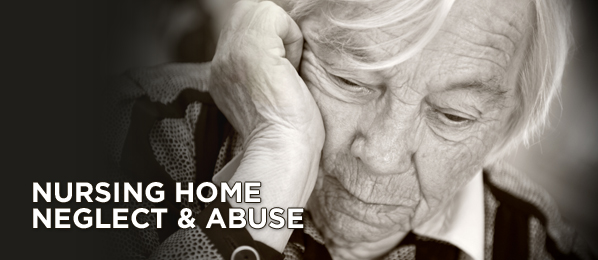What Is a Nursing Home Abuse Lawsuit? All you need to know
Those who have elders at home are surely familiar with their deteriorating health conditions. While most of us have the opportunity to look after our loved ones, many don’t have the time or resources to do so. To provide assistance in such matters, nursing facilities are available that offer much more advanced medical care and support to these loved ones. These facilities are staffed with skilled and compassionate caregivers who bring comfort not only to the elderly but also to their loved ones.
Here’s the point of concern, though, while most of these facilities are well-intentioned, many fail to meet the standards of quality and care. According to a 2017 study, one in every six people admitted to a caregiving facility face abuse. The harsh truth is that the statistics have only appeared to have increased with time. CNN data found that over a thousand nursing homes were reported for sexual abuse in the last six years.
Hence, admitting a loved one into an assisted living facility, such as a nursing home, is heartbreaking and difficult.
What Kind Of Nursing Home Abuse Threat Looms Over Our Elders?
Elder abuse is not always visible and clear to the loved ones visiting. In some cases, elders also face psychological abuse. According to WHO data, about 11.6% of elders face emotional abuse, while 2.6% endure physical abuse.
So What Steps Can We Take To Prevent This Abuse?
While we cannot prevent the issue, we can certainly take legal actions to discourage it. Upon suspecting any signs of abuse, you must immediately file a nursing home abuse lawsuit and consult their expertise on the matter. Taking legal action may not just save your loved one from the abuse. It might also get you financial compensation for the harm that was done to your loved one. Let’s find out more about it:
Nursing Home Abuse Lawsuit
A nursing home abuse lawsuit is a civil action brought against a nursing facility claiming that the residents were mistreated. Although most victims seek compensation through civil lawsuits, some may seek restitution through criminal lawsuits. The majority of civil lawsuits result in settlements.
How Can I File A Lawsuit?
During the recent pandemic, elder abuse cases have increased dramatically. According to ABC News, more than 35,000 nursing home residents had died of Coronavirus before the first quarter of 2020 because of insufficient staffing and lack of protection.
It is possible to file a nursing home lawsuit by contacting a lawyer. Cases like these are typically handled by law firms on contingency, which means that the firm does not get paid unless they reach a settlement or verdict.
A nursing home abuse lawsuit can be filed between one and six years after the incident occurred. Therefore, you should consult with an attorney right away to protect your rights.
Here’s a step-by-step look at the lawsuit process
- The client detects the abuse – if their loved one is injured, visibly harmed, or even killed
- The lawyer meets with the client, investigates the claim, and files the lawsuit
- The defendant is served with the lawsuit, the defendant replies, and discovery begins
- Settlement or mediation proceedings may begin (the majority of disputes settle at this point)
- If there is no settlement, the case proceeds to trial, and both sides present their case before the jury and judge
- Settlements or jury verdicts are shared
What Is The Settlement Time?
A nursing home claim can require a long time to resolve, just like most lawsuits. It takes attorneys about 18 to 24 months to resolve these claims. Trials may take longer under certain circumstances.
Either party can appeal a jury verdict if they are not satisfied with the decision.
How To Prove Nursing Home Negligence?
In a nursing home abuse case, the plaintiff needs to demonstrate a number of elements to win the case. These elements are called proof of the claim.
Defendants must prove the following:
- The nursing facility took responsibility for caring for the victim
- They ignored this responsibility
- Because of their neglect, the patient suffered
- The victim suffered mental/ financial/ physical abuse
Nursing homes may argue that a resident’s condition contributed to the injury.
The Damages Are Numerous
A nursing home abuse lawsuit may involve medical bills and rarely punitive damages. If the plaintiffs prove the nursing home was grossly negligent and intentionally reckless, they are entitled to punitive damages. Essentially, it is compensation for the wrongdoing of the negligent party.
The following are examples of compensation in lawsuits:
- In the event of an accident or death, they may have lost wages
- Or an inability to work because of the injury
- If they are suffering or are in pain
- The party incurred medical bills or funeral costs because of the facility’s involvement
- Emotional suffering
What Is The Value Of My Case?
Because each case is unique, it is impossible to estimate its value.
A wrongful death settlement depends mostly on the damages the victim or the surviving family suffered. The settlement and verdict amount for wrongful death claims is usually higher.
Depending on the attorney, settlements can range from $50,000 to more than $250,000; however, some verdicts have reached millions of dollars.
Is There Anything Else I Can Do To Protect My Loved Ones From Abuse?
Family caregivers may not have the ability to watch over a loved one as close as family members, but they can still guard against abuse in nursing homes.
Loved ones may help prevent elder abuse in a nursing home by:
- Understanding what elder abuse looks like and how it is detected
- Keeping in regular contact with their loved ones
- Notifying staff or other authorities immediately about concerns regarding eldercare
- Checking potential nursing homes for red flags
- Regular visits
Those who care for aging family members should also seek out facilities that have characteristics that help prevent elder abuse.
Nursing Homes May Help Prevent Elder Abuse By:
- Creating solid procedures and policies for patient care
- Ensuring that volunteers and social workers are available frequently
- Setting up quality control measures
- To ensure that staff members receive training regarding elder abuse and neglect
What Steps Can You Take After To Prevent Elder Abuse
In the United States, 1 in 10 seniors suffers abuse – sadly, preventing elder abuse is impossible. You can take many precautions to help keep your loved ones safe, whether they are living at home or in a nursing home.
If elder abuse occurs in a nursing home, follow these steps:
- Get your loved one out of the abusive situation as soon as possible
- Ensure that a senior is taken care of physically and emotionally. If your loved one’s physical condition concerns you, call 911
- Contact Adult Protective Services (APS), the police, or the nursing home ombudsman if you suspect abuse
- If your loved one suffered abuse, you might want to consider filing a lawsuit to cover medical bills, therapy, relocation costs, and other damages
Conclusion
Elder abuse is devastating for victims and their loved ones, but you are not alone. You can take legal actions to mitigate abuse on your loved ones and get compensation for what they have already suffered. Depending on the type of abuse the elder has faced, a good law firm will help you bring justice to the victim. Besides pursuing Legal Action, you can also take other steps to help your loved ones stay out of trouble.



